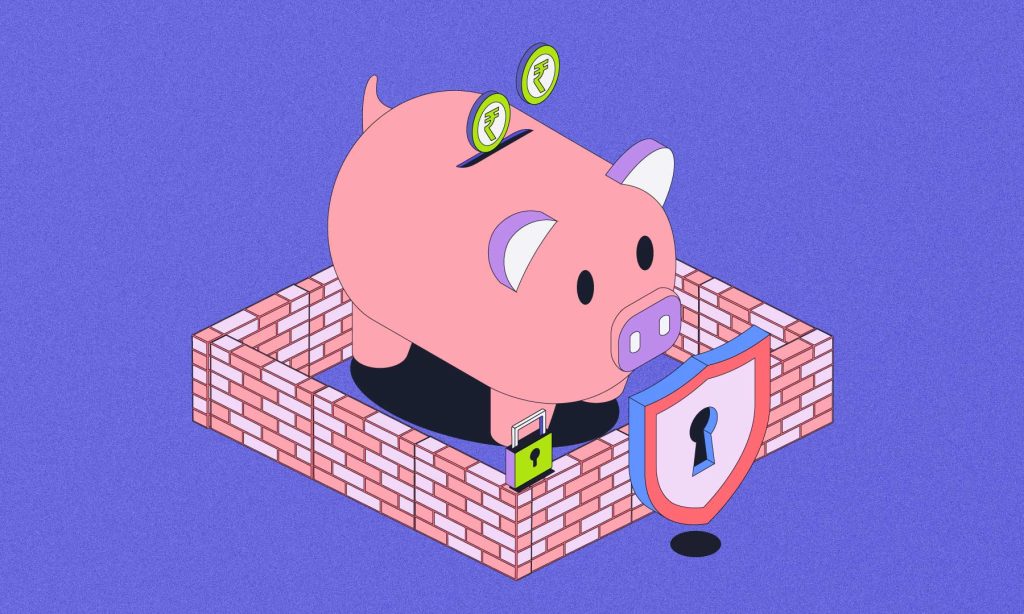Cybercriminals always have their eyes on us. So we must also be aware of their presence and secure ourselves against them. One of the most basic things to do if you want this type of investment is to learn about fixed deposit frauds and scams.
What are fixed deposit frauds and scams?
Fixed deposit fraud is a kind of fraudulent activity concerning fixed deposit investments.
This sometimes involves someone posing as a representative of your bank, fishing for personal details. They use the details to create FDs in the user accounts, which they then use to secure overdrafts. Other times, frauds have been known to approach customers and pretend to open FD accounts. With such scams rising, the State Bank of India issued an advisory in 2021 asking people to safeguard their personal information.
How to avoid fixed deposit fraud
The best way to protect yourself is to learn to identify and avoid fixed deposit fraud. Read on to learn how.
Use the right internet service.
Ensure you use a safe internet connection while accessing your online accounts. Digital fraudsters are always looking for safety loopholes to steal personal details. And a secure network will leave the door open for them to do so. That’s why avoiding public or unknown networks while conducting online transactions is essential.
Ensuring you have excellent malware installed on your computer will also help.
Be cautious while using your card.
Never disclose your credit/debit card information to anyone, especially if you have a fixed deposit. Protect your code while entering it in public places like a supermarket or an ATM. Don’t feel conscious about doing it around anyone because we all have to prioritize our safety; everyone knows it’s nothing personal.
Be especially careful with related information, such as CVV or OTP.
And if you experience any suspicious activity, talk to the cyber cell immediately.
Keep changing the passwords.
Hacking passwords is a simple task for digital fraudsters. So to protect yourself, you must use a strong password for your financial accounts. It helps combine letters, symbols, and special characters and avoid anything too obvious—like your birthday or spouse’s name. But no matter how strong your password is, keep changing it often.
Not using the same password for a long time will make the task harder for hackers.
How to stay safe
To wrap up this article, here are some basic dos and don’ts to help you stay safe.
Dos
Some things that you need to do to stay safe are:
- In the nominee section, fill in the correct details and keep it up to date.
- A key part of protecting yourself is to keep your correspondence address and mobile number up to date. All vital messages and notices concerning FD liquidations will reach you through these channels from official addresses only.
- Only download apps from legit places like Google PlayStore, and always double-check URLs.
- Ensure that you are speaking to a rightful representative by meeting them in person on the bank’s premises.
Don’ts
These are the things that you must not do to stay safe.
- Never share your OTP with a third party. Even if someone claims to be a bank representative, they will not ask for this for KYC changes or financial transactions.
- If a person calls from an unknown number, pretending to represent a famous company, and offers to help you create a fixed deposit, do not believe them. Banks never conduct such transactions on call.
- Do not hand over your smartphone to third parties for financial transactions or KYC change requests.
- Never issue a blank/self-cheque to create a fixed deposit. You need to mention the name of the bank or firm with account payee marking.
- No details related to banking/EMI card/credit card must be shared with third-party representatives. There is no way to verify telecallers’ identities, so conduct in-person transactions as much as possible.
- Ensure that you don’t pay money in advance to anyone for FD bookings.
Conclusion
Fixed deposits are known to be a safe investment option. But like all other investments, they are unsafe if you do not follow the best practices. Never assume that you are safe. Many think that investment frauds only affect millionaires, but that isn’t true at all. The American Association of Retired Persons (AARP) says investment scams are most common among older investors. And scammers often use social connections to win the victims’ trust. So it could be a parent, and it could be you next. Stay cautious!
FAQs
Can fraudsters take money from FD?
No, fraudsters cannot directly take money from a Fixed Deposit (FD) account without unauthorized access or fraudulent activities.
Can I get my money back if I am scammed?
Recovering money from a scam depends on various factors. It’s best to report the incident to authorities and consult legal advice for potential options.
Why do people fall for investment scams?
People can fall for investment scams due to persuasive tactics, promises of high returns, lack of financial knowledge, or emotional vulnerability.
What are do and donts of fixed deposit investment?
Do: Research the bank’s reputation, compare interest rates, understand the terms, and consider the tenure that suits your financial goals.
Don’t: Invest without reading the fine print, neglect to diversify your investments, or withdraw before maturity unless absolutely necessary.
Is FD safe from fraud?
FDs themselves are generally safe from fraud, but it’s crucial to ensure you invest with reputable institutions and be cautious of scams targeting personal information or unauthorized access to your accounts.








